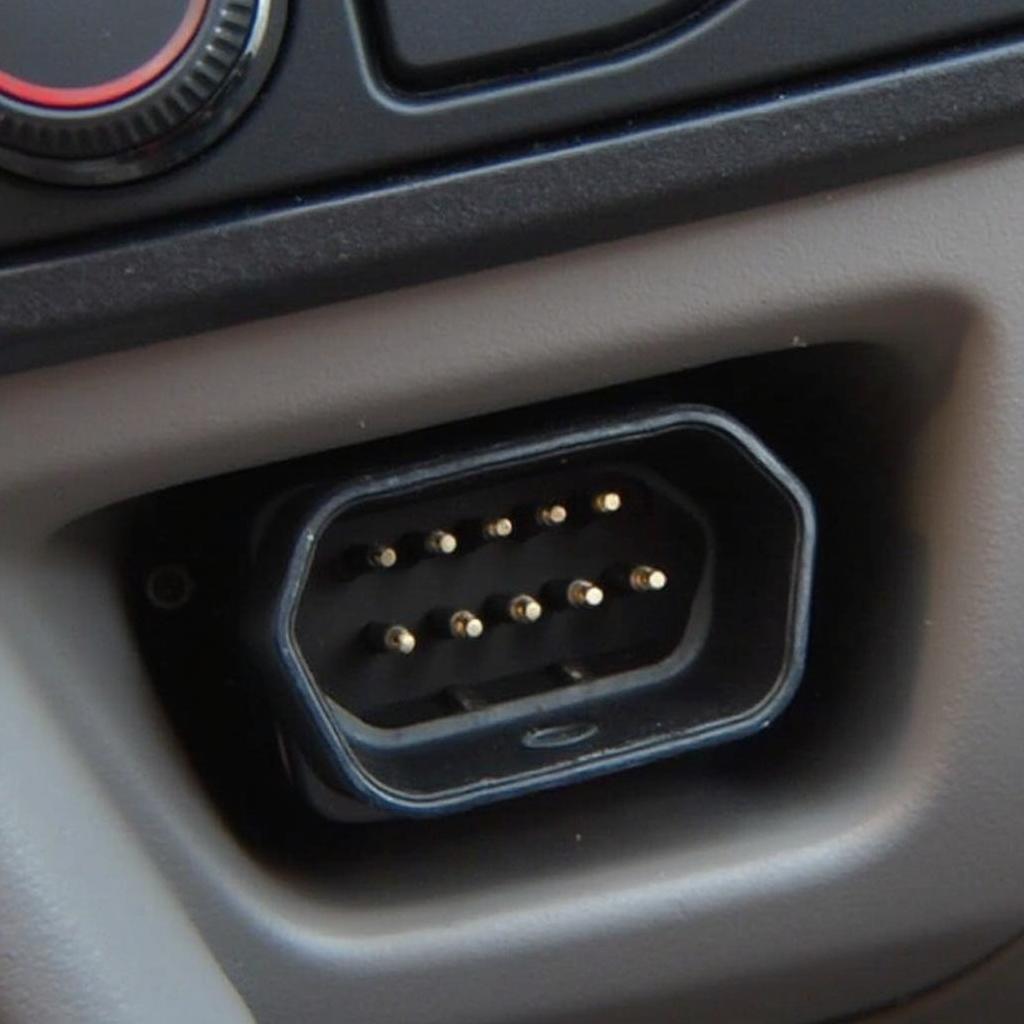OBD2 tuning for Honda vehicles has become increasingly popular among car enthusiasts looking to enhance their driving experience. But what exactly is involved, and is it the right choice for you? This comprehensive guide will delve into the world of OBD2 tuning for Honda, covering everything from the basics to advanced techniques.
Understanding OBD2 and its Role in Tuning
Before we dive into the specifics of Honda tuning, it’s crucial to grasp the fundamentals of OBD2. OBD2, short for On-Board Diagnostics, is a standardized system implemented in vehicles to monitor and report on various engine and emissions-related components. The OBD2 port, typically located under the driver’s side dashboard, serves as the access point for retrieving diagnostic trouble codes (DTCs) and monitoring real-time vehicle data.
While initially designed for emissions testing, the OBD2 system has evolved into a powerful tool for tuning and performance enhancement. By connecting an OBD2 scanner or tuning device, you can access and modify various engine parameters, ultimately influencing your Honda’s performance characteristics.
How OBD2 Tuning Works on Honda Vehicles
OBD2 tuning for Honda, like other car manufacturers, revolves around adjusting the vehicle’s Engine Control Unit (ECU). The ECU is essentially the brain of your car’s engine, responsible for managing fuel injection, ignition timing, air-to-fuel ratios, and other critical parameters that affect performance.
Tuning your Honda via OBD2 typically involves using specialized software and a compatible OBD2 interface cable that connects your car to a laptop or handheld device. This software communicates with your Honda’s ECU, allowing you to adjust various engine parameters within predefined limits.
Benefits of OBD2 Tuning for Honda
OBD2 tuning presents several potential benefits for Honda owners:
- Increased Horsepower and Torque: By optimizing ignition timing, fuel delivery, and other parameters, OBD2 tuning can unlock hidden power and torque, enhancing acceleration and overall performance.
- Improved Throttle Response: Tuning can sharpen throttle response, making your Honda feel more responsive and eager to accelerate.
- Enhanced Fuel Efficiency: While not always guaranteed, OBD2 tuning, when done correctly, can lead to modest fuel economy improvements, especially when combined with economical driving habits.
- Customizable Driving Experience: Tuning allows you to fine-tune your Honda’s engine characteristics to match your driving preferences.
Popular OBD2 Tuning Options for Honda
The world of OBD2 tuning for Honda offers a variety of options, each with its pros and cons. Here are some of the most common approaches:
- Off-the-Shelf Tuning Software: This readily available software provides pre-configured tunes designed for specific Honda models and engine types. It’s generally user-friendly but might not offer the same level of customization as custom tuning.
- Custom ECU Tuning (Chipped ECUs): This involves physically modifying or replacing your Honda’s ECU to achieve more aggressive performance gains. This method typically requires professional installation and calibration.
- Piggyback ECUs: These devices work in conjunction with your Honda’s factory ECU, intercepting and modifying engine signals to alter performance. They offer a balance between affordability and customization.
Risks and Considerations
While OBD2 tuning holds the potential to enhance your Honda’s performance, it’s crucial to be aware of the associated risks and considerations:
- Warranty Concerns: Modifying your Honda’s ECU or engine parameters could potentially void your vehicle’s warranty. Consult your warranty terms or dealer for clarification.
- Engine Damage: Incorrect tuning or pushing your engine beyond its limits can lead to engine damage.
- Legal Ramifications: In some regions, modifying your vehicle’s emissions output through tuning might be illegal for on-road use.
Conclusion
OBD2 tuning provides a pathway to unlock your Honda’s hidden potential, offering enhanced performance and a more engaging driving experience. However, it’s not a decision to be taken lightly. Thorough research, understanding the risks, and choosing a reputable tuning method are essential steps to ensure a safe and successful tuning experience.
Remember, when it comes to modifying your vehicle, knowledge is power. Equip yourself with the right information and proceed with caution.

